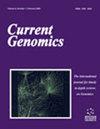综合分析泛癌症中间质干细胞相关基因的临床结果
IF 1.4
4区 生物学
Q4 BIOCHEMISTRY & MOLECULAR BIOLOGY
引用次数: 0
摘要
背景:尽管间充质干细胞(MSCs)在组织再生等工程医学中的应用已广为人知,但新的证据显示,间充质干细胞也能促进癌症进展、转移和耐药性。然而,目前尚未对间叶干细胞进行大规模队列分析,以揭示其对癌症患者预后的影响。我们的目标是我们提出将间叶干细胞评分作为泛癌症方法中不良预后的新型替代指标:我们使用单样本基因组富集分析法将间叶干细胞相关基因量化为一个特征得分,并使用多变量 Cox 回归分析法将特征得分确定为癌症的潜在独立预后标志物。利用 TIDE 算法和神经网络评估间充质干细胞相关基因对免疫疗法的预测准确性。结果显示在33种癌症类型中,正常样本和肿瘤样本的间充质干细胞相关基因表达存在明显差异。Cox回归分析表明,间充质干细胞评分是肾脏乳头状细胞癌、间皮瘤、胶质瘤和胃腺癌的独立预后标志物。成纤维细胞的丰度也比基质评分更能代表间充质干细胞评分。我们的研究结果支持结合使用 TIDE 算法和神经网络来预测间充质干细胞相关基因用于免疫疗法的准确性。结论我们全面描述了泛癌症中间叶干细胞的转录组、基因组和表观遗传学特征,并揭示了间叶干细胞在肿瘤微环境中的串扰,尤其是与癌症相关成纤维细胞的串扰。研究表明,这可能是癌症免疫疗法耐药性的关键来源之一。本文章由计算机程序翻译,如有差异,请以英文原文为准。
Integrated Analysis of Clinical Outcome of Mesenchymal Stem Cellrelated Genes in Pan-cancer
Background: Although the application of mesenchymal stem cells (MSCs) in engineered medicine, such as tissue regeneration, is well known, new evidence is emerging that shows that MSCs can also promote cancer progression, metastasis, and drug resistance. However, no large-scale cohort analysis of MSCs has been conducted to reveal their impact on the prognosis of cancer patients. Objective: We propose the MSC score as a novel surrogate for poor prognosis in pan-cancer Methods: We used single sample gene set enrichment analysis to quantify MSC-related genes into a signature score and identify the signature score as a potential independent prognostic marker for cancer using multivariate Cox regression analysis. TIDE algorithm and neural network were utilized to assess the predictive accuracy of MSC-related genes for immunotherapy. Results: MSC-related gene expression significantly differed between normal and tumor samples across the 33 cancer types. Cox regression analysis suggested the MSC score as an independent prognostic marker for kidney renal papillary cell carcinoma, mesothelioma, glioma, and stomach adenocarcinoma. The abundance of fibroblasts was also more representative of the MSC score than the stromal score. Our findings supported the combined use of the TIDE algorithm and neural network to predict the accuracy of MSC-related genes for immunotherapy. Conclusion: We comprehensively characterized the transcriptome, genome, and epigenetics of MSCs in pan-cancer and revealed the crosstalk of MSCs in the tumor microenvironment, especially with cancer-related fibroblasts. It is suggested that this may be one of the key sources of resistance to cancer immunotherapy.
求助全文
通过发布文献求助,成功后即可免费获取论文全文。
去求助
来源期刊

Current Genomics
生物-生化与分子生物学
CiteScore
5.20
自引率
0.00%
发文量
29
审稿时长
>0 weeks
期刊介绍:
Current Genomics is a peer-reviewed journal that provides essential reading about the latest and most important developments in genome science and related fields of research. Systems biology, systems modeling, machine learning, network inference, bioinformatics, computational biology, epigenetics, single cell genomics, extracellular vesicles, quantitative biology, and synthetic biology for the study of evolution, development, maintenance, aging and that of human health, human diseases, clinical genomics and precision medicine are topics of particular interest. The journal covers plant genomics. The journal will not consider articles dealing with breeding and livestock.
Current Genomics publishes three types of articles including:
i) Research papers from internationally-recognized experts reporting on new and original data generated at the genome scale level. Position papers dealing with new or challenging methodological approaches, whether experimental or mathematical, are greatly welcome in this section.
ii) Authoritative and comprehensive full-length or mini reviews from widely recognized experts, covering the latest developments in genome science and related fields of research such as systems biology, statistics and machine learning, quantitative biology, and precision medicine. Proposals for mini-hot topics (2-3 review papers) and full hot topics (6-8 review papers) guest edited by internationally-recognized experts are welcome in this section. Hot topic proposals should not contain original data and they should contain articles originating from at least 2 different countries.
iii) Opinion papers from internationally recognized experts addressing contemporary questions and issues in the field of genome science and systems biology and basic and clinical research practices.
 求助内容:
求助内容: 应助结果提醒方式:
应助结果提醒方式:


